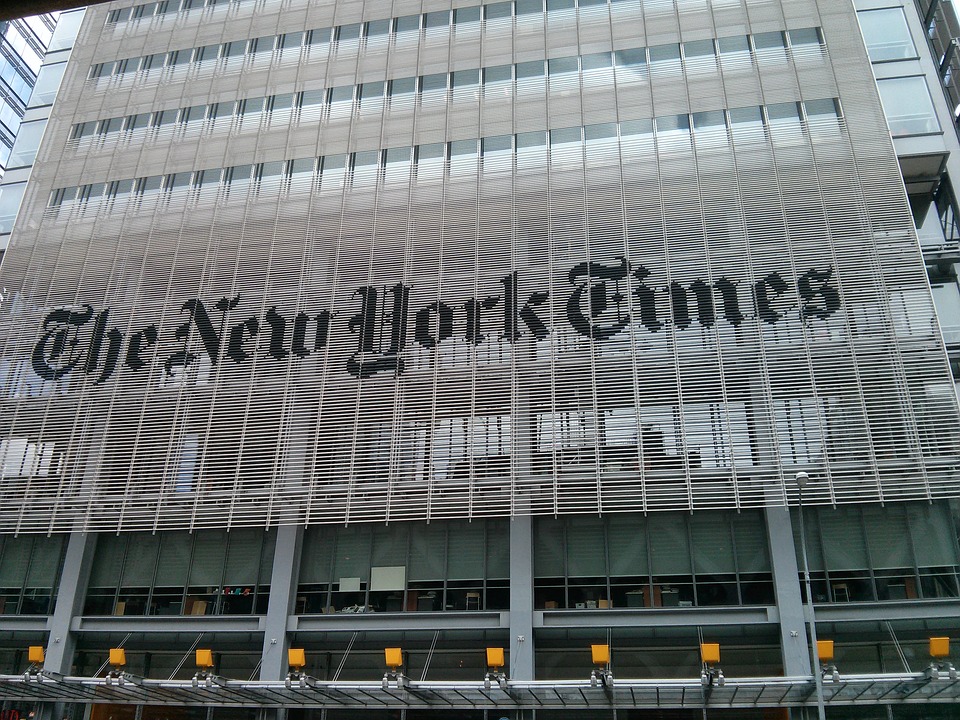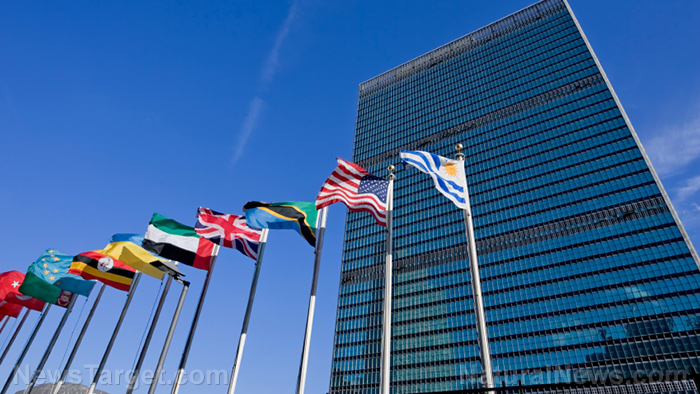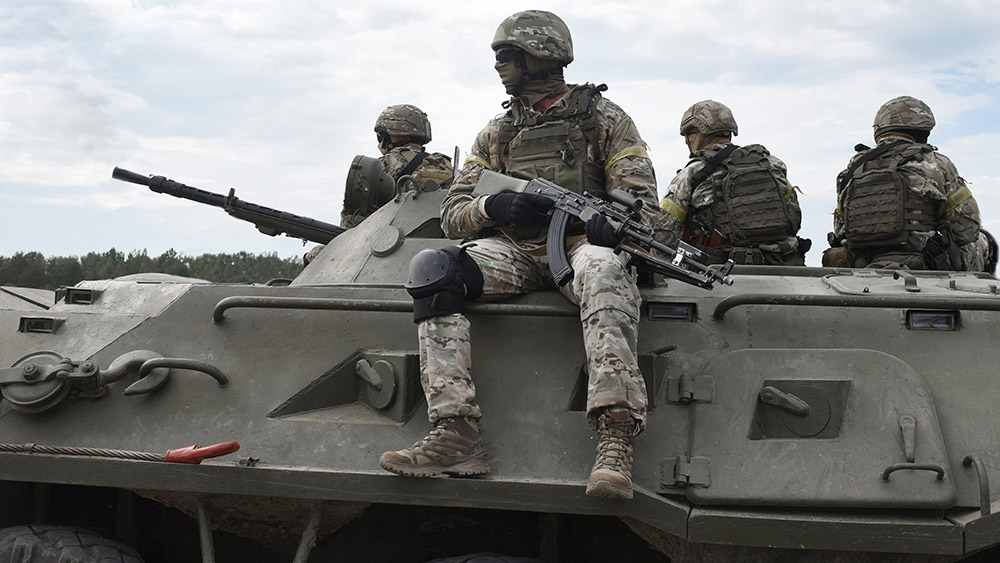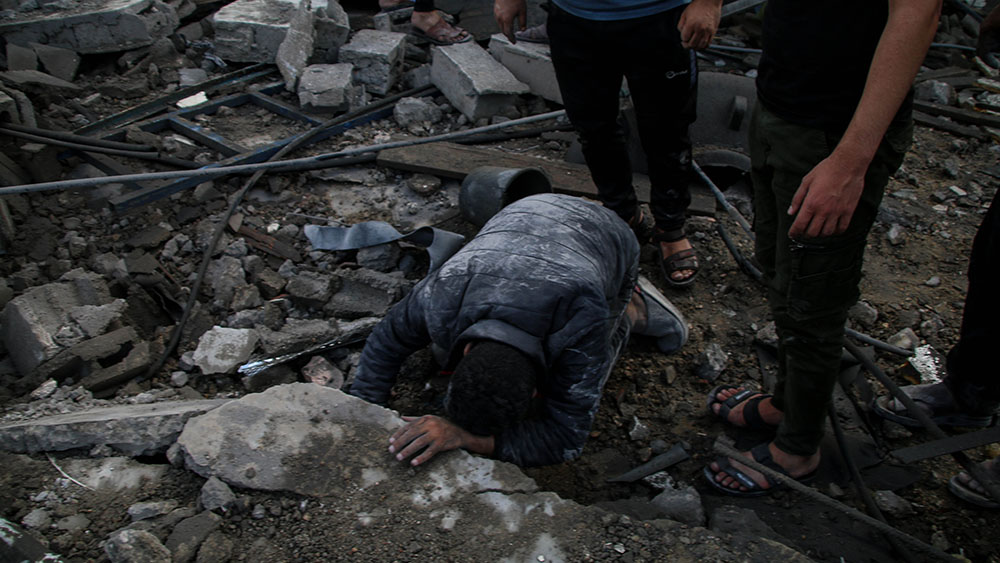 Parler
Parler Gab
Gab
- Over 150 prominent contributors are refusing to write for the New York Times opinion section, citing systematic bias in its coverage of Israel's war in Gaza.
- The boycott demands a full review of anti-Palestinian bias, a retraction of a controversial article on sexual violence from October 7, and an editorial call for a U.S. arms embargo on Israel.
- Signatories argue the Times' immense influence as the "paper of record" means its reporting failures have a cascading effect, shaping narratives across Western media.
- The protest highlights the profound challenges of war reporting when independent verification is nearly impossible, raising questions about which voices are centered and which claims are rigorously scrutinized.
The weight of a byline and the weight of war reporting
The list of signatories reads like a who’s who of progressive thought and literary acclaim. It includes Palestinian American Congresswoman Rashida Tlaib, climate activist Greta Thunberg, Pulitzer Prize-winning author Viet Thanh Nguyen, and novelist Sally Rooney. They are joined by over 300 scholars and journalists like Marc Lamont Hill, Noura Erakat, Vijay Prashad, and Rashid Khalidi, as well as voices like former Army intelligence analyst turned whistleblower Chelsea Manning and sports journalist Dave Zirin. Their collective grievance is not with a single article but with what they describe as a decades-long pattern. The letter states the Times has "obfuscated, justified, and outright denied the occupier's war crimes," creating a hegemonic narrative that launders official statements into accepted fact. For these writers, contributing a first-person essay to the opinion section would be an act of complicity, lending their individual credibility to an institution they believe has failed its basic ethical duty. By withholding their labor, they aim to mount a challenge that cannot be ignored, forcing a public reckoning within one of America's most powerful media institutions.A blueprint for accountability in war reporting or activist pressure?
The boycott is not merely a statement of principle; it is a detailed indictment accompanied by three concrete demands. The first calls for the paper to conduct a formal review of anti-Palestinian bias and establish new editorial standards for its Palestine coverage. This includes updated sourcing practices and a revised style guide, a foundational tool that dictates the language journalists use. The choice of words in this conflict is never neutral; it carries the weight of history and political allegiance. The signatories also demand a ban on employing any journalist who has served in the Israeli military, a measure aimed at confronting perceived structural conflicts of interest. The second demand focuses on a specific, high-profile piece of reporting: the December 28, 2023, article “Screams Without Words,” which detailed allegations of systematic sexual violence during the October 7 attacks. The letter calls for its retraction, pointing out that the story relied heavily on the testimony of a single, unnamed Israeli paramedic. It notes that family members of the alleged victims had given interviews that seemed to contradict the account, yet these were not included. The controversy deepened when it was revealed that one of the article’s authors, Anat Schwartz, an Israeli filmmaker with no prior news reporting experience, had liked a social media post calling for Gaza to be turned into a “slaughterhouse.” For the boycott’s supporters, this story exemplifies a failure of basic journalistic rigor, where sensational claims were prioritized over verified evidence, especially when reporting on a subject as grave as sexual violence.The context beyond the headlines
The third demand moves from the paper’s internal mechanics to its external political influence: it urges the Times editorial board to call for a U.S. arms embargo on Israel. This positions the newspaper not just as an observer but as a potential actor with a moral responsibility to oppose the provision of weapons used, in the signatories' view, in a "genocidal war." “Language makes genocide justifiable. A reason why we are still being bombed after 243 days is because of The New York Times and most Western media,” the Palestinian journalist Hossam Shabat wrote, months before Israel assassinated him. The writers argue their demands are far from radical, pointing to the paper’s own history of change. They recall that during the AIDS crisis, the Times updated its style guide to use the term "gay" instead of "homosexual," and years later, it apologized for its flawed reporting in the lead-up to the Iraq War, which relied heavily on uncritical repetition of Bush administration claims about weapons of mass destruction. This historical precedent is crucial. It suggests that the Times, for all its power, is not infallible and that its institutional biases can and have been corrected under pressure. The current protest forces a difficult conversation about the role of a "paper of record" in a conflict where independent verification is severely constrained. With Israel banning foreign journalists from entering Gaza, news organizations have been forced to rely on a patchwork of Palestinian journalists working under unimaginable duress, Israeli military briefings, and official statements. This environment creates a fertile ground for misinformation and makes the Times’ commitment to rigorous, balanced reporting not just an ideal, but a lifeline for public understanding. The boycotters contend that in this critical moment, the paper has chosen to amplify power rather than question it, leaving its readers in the dark about the historical roots of the crisis and the full, devastating human cost of the war. The empty space where these contributors' bylines would have been is now a silent, powerful testament to that perceived failure. It's time to listen closely to the marginalized voices instead of dismissing them as "anti-Semitic." Sources include: MiddleEastEye.net MiddleEastEye.net Opinion-boycott.comUnited Nations demands $1.3 trillion for “climate justice” ahead of COP30 summit
By Ramon Tomey // Share
Washington seeks UN approval for International Security Force to be deployed in Gaza
By Ramon Tomey // Share
Israel bans two Jewish-American women for assisting Palestinian farmers in West Bank
By Kevin Hughes // Share
Digital erasure: Big Tech bows to political pressure, wiping out Palestinian war crime documentation
By Belle Carter // Share
Gaza death toll nears 70,000 as ceasefire fails to stop bloodshed
By Kevin Hughes // Share
UN staff in Yemen face trial over alleged links to Israeli assassination strikes
By Belle Carter // Share
Governments continue to obscure COVID-19 vaccine data amid rising concerns over excess deaths
By patricklewis // Share
Tech giant Microsoft backs EXTINCTION with its support of carbon capture programs
By ramontomeydw // Share
Germany to resume arms exports to Israel despite repeated ceasefire violations
By isabelle // Share










